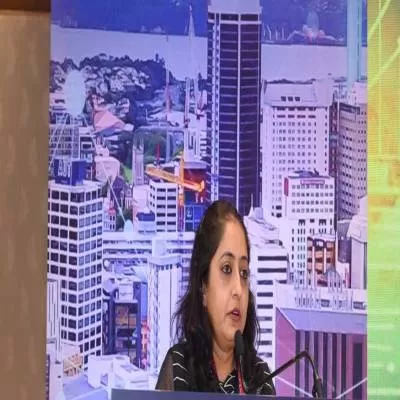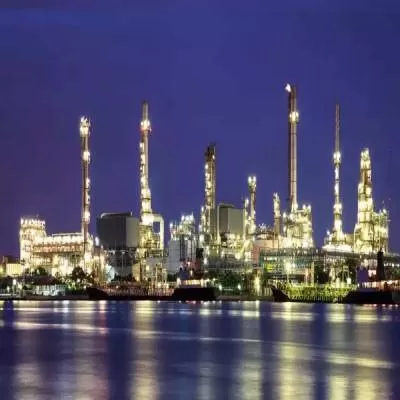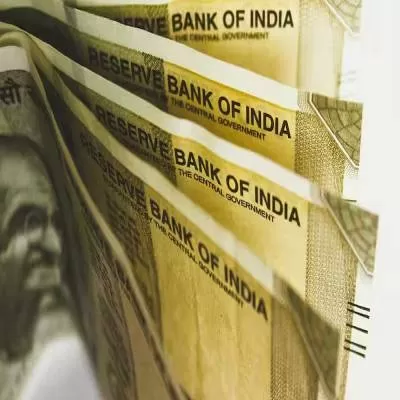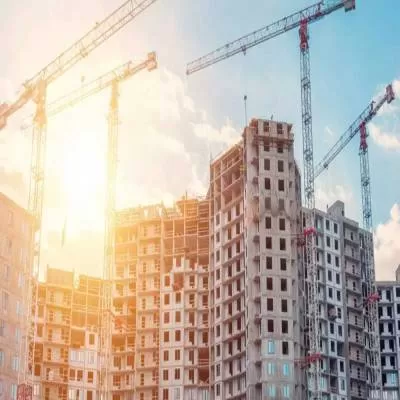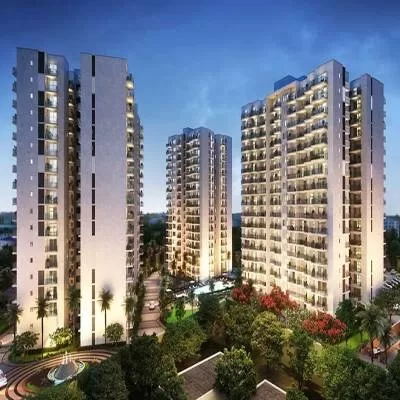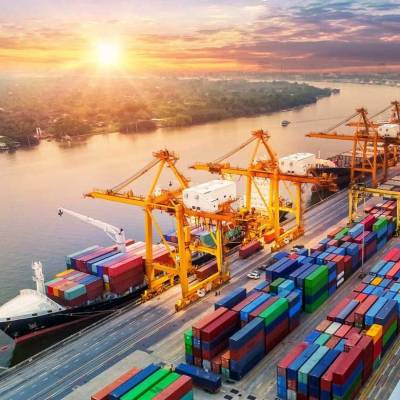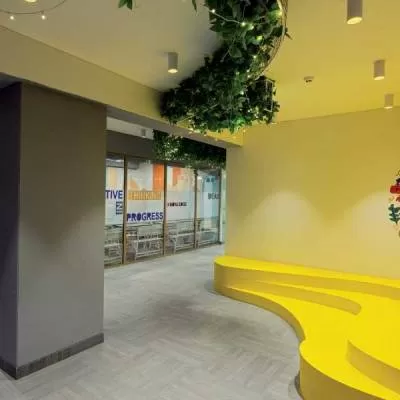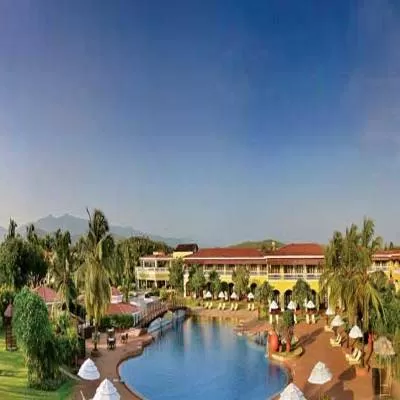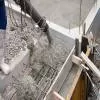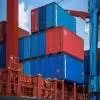- Home
- Real Estate
- New Direction

New Direction
<span style="font-weight: bold;">MUKUND SAPRE</span> elaborates upon the dawn of different realities in the roads sector. <p></p> <p> The infrastructure sector is the backbone of the Indian economy and its importance cannot be stressed enough. The government of India has earmarked 20 per cent of the investment of $1 trillion reserved for infrastructure in the Twelfth Five-Year Plan (2012-17) to develop the country's roads; this is about 10 per cent of the GDP up from 7.6 per cent in the previous plan. </p> <p> <span style="font-weight: bold;">Prioritising transport</span><br /> The transport infrastructure sector in India is expected to grow at 6.1 per cent in real terms in 2017 and grow at a CAGR of 5.9 per cent through the year 2021, thereby becoming the fastest-expanding component of the infrastructure sector. The government has been making efforts to boost the sector through various schemes and incentives and is working on policies to attract and maintain significant investor interest. The Union Minister of State for Road, Transport and Shipping has stated that the government aims to boost corporate investment in roads and shipping, along with introducing business-friendly strategies that will balance profitability with effective project execution. </p> <p> The nature of this sector is such that it is always evolving, as a result of technological innovations, environmental constraints and the dynamics of the operating environment. Thus, stakeholders must accept these new realities, be cognisant of all associated risks and opportunities these evolutions present, and adopt their business processes to the changing environment. </p> <p> <span style="font-weight: bold;">Evolution aplenty</span><br /> In the past decade, various technological evolutions have supplemented increase in productivity and provided the sector with environment-friendly and economical alternatives. As far as construction is considered, our company is constantly upgrading its technological base with emphasis on unique construction. For example, the Chenani-Nashri Tunnel in Jammu & Kashmir constructed by us is the first-of-its-kind in India with a world-class Integrated Tunnel Control System (ITCS), apart from being the longest road tunnel in the country. Such an integrated system is vital to ensure optimum safety of commuters and overcome any eventualities. Such a construction and technological marvel has set the example for future tunnelling projects in the country. </p> <p> The ban on mining owing to environmental threats had led to the proliferation of substitutes such as M-sand instead of natural river sand, crushed steel slag instead of aggregates, etc. With zero per cent silt content, M-sand is more environment-friendly and economical compared to river sand; in addition, it provides better strength to concrete. Likewise, steel slag, a disposal hazard, has shown better results when used in bituminous construction compared to natural aggregates in a controlled scenario. Porous asphalt and concrete mixes are being used to reduce groundwater run-off and help recharge the depleting ground water table with precipitation. Many of these mixes are slowly finding mention in new-age contracts and specifications as well. </p> <p> Technological amelioration is not restricted to construction but finding its way in operation and maintenance. Pavement rehabilitation methods such as micro-surfacing and cold and hot recycling of pavement layers will soon be used in wide-scale asset maintenance. And the recent government manoeuvre urging the people and the private sector to go digital in their transactions has seen a rise in the number of people opting for Electronic Toll Collection (ETC). In fact, the 'Go Digital' initiative has helped concessionaires explore new options to sell toll tickets through RFID fast tags, reducing the wait time at toll plazas substantially.</p> <p> <span style="font-weight: bold;">Accountability for all</span><br /> Further, there has been a long-pending need to focus on the social accountability of various firms in the sector. Now, there is growing awareness and people have become more alert to the damages caused to society and nature during construction. As a result, many firms have worked towards ISO certification and environment and society-friendly processes; methods are being built into the business process to maintain societal and environmental harmony. </p> <p> There is also a growing focus on road accidents and the need to reduce the same with active involvement of all stakeholders, rather than just the local administration and police and road users. Contractors and concessionaires, who have earlier been taking a passive stand on road accidents citing lack of policing rights, are now being questioned and pushed to go beyond norms. As concessionaires, we have always taken an active stand on road accidents and gone beyond specifications and codes to reduce accidents; this has met with intended success. </p> <p> What's more, with a view to ease the cash crunch in the sector, the authority has taken radical steps to speed up dispute resolution. As of now, Rs 38,000 crore worth of claims are pending with NHAI. According to a recent circular, the authority has proposed an independent contract management department to help it close out long-pending disputes internally where possible. The recently amended Arbitration Act was a welcome gesture that aims to fast-track arbitration within a maximum of one-and-a-half years; under the earlier framework, it could drag on endlessly. Besides this, the provision of seeking 75 per cent of the arbitration award against the submission of bank guarantee (BG)will help ease the cash crunch. </p> <p> Such measures are bound to improve cash flow in the sector, and coupled with the easing of norms to obtain environmental clearances and land acquisition, projects are expected to be concluded much faster than before </p> <p> <span style="font-weight: bold;">Stability ahead</span><br /> While the new GST Act implemented by the government has received mixed reviews, the online filing requirement will help reorganise and structure the roads sector, which has largely remained unorganised since inception owing to a lack of procedures and systems in place. Additionally, in light of many large-scale projects turning into NPAs and burdening the books, the banking sector has resorted to greater scrutiny before lending to private firms and has shown a reluctance to fund PPP projects. This, in turn, has forced the authority to shift its mode of delivery from PPP to EPC. However, this is a cyclic process; once the sector stabilises, PPP projects are expected to be back in focus.</p> <p> Keeping the current circumstances and the pattern of projects being awarded in mind, our company has ventured into the EPC sector and secured some large and complex projects. We will look to develop an in-house company as a construction contractor in the mid-size segment. Moving forward, the company looks to build on its EPC project portfolio by bidding as a single entity for large, complex projects.</p> <p> In conclusion, the Indian roads sector is showing signs of revival drawing on several measures announced by the government. </p> <p> To assure this, the various stakeholders must work in alliance to restore the cash flow of the sector and minimise strife to provide the much-needed infrastructure to take India from the status of a developing nation to a truly developed one.</p> <p> <span style="font-weight: bold;">About the author: <br /> Mukund Sapre, CEO, Infrastructure Leasing & Financial Services (IL&FS), </span>is also the Executive Director, IL&FS Transportation Networks (ITNL) and Managing Director, IL&FS Engineering and Construction Company (IECCL) and Elsamex SA; Spanish subsidiary of ITNL. Besides these, he is a Director on Board of nine Indian companies and seven international companies. He has close to 37 years of experience, of which, the last 18 years have been dedicated to privatisation in the country. </p>


